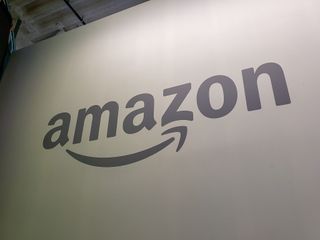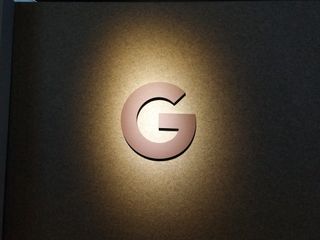Hi Alexa, Amazon's Echo device team isn't convinced a new subscription service and refreshed personal assistant will save the company from the billion in losses
Amazon will reportedly launch a paid subscription for Alexa this month.

What you need to know
- Amazon's device division is deep in losses amounting to $25 billion between 2017 and 2021.
- Amazon CEO Andy Jassy is seemingly dropping the downstream impact metric implemented by former CEO Jeff Bezos and zeroing in on products with a clear profit-making path.
- Amazon is reportedly set to launch a new subscription service for Alexa and is already working on a refreshed version of the personal assistant with sophisticated capabilities.
Amazon's vision for its Echo smart home devices with the Alexa voice assistant is worlds apart from reality. As you may know, these devices are designed to transform a basic household into a smart home by leveraging Alexa's capabilities to automate lights, thermostats, security cameras, and more.
Like new-age AI chatbots like ChatGPT or Microsoft Copilot, users can leverage Alexa's smarts to ask questions, set reminders, play music, automate routine tasks, and more. While hundreds of millions of customers have Alexa-enabled devices, they are not using them for their intended purpose (via The Wall Street Journal).
Amazon launched the smart devices with the Alexa in 2014. In a perfect world, the company pictured users breaking the bank buying products on Amazon while using the devices. However, this didn't come to fruition as users were more inclined to use the free apps of smart gadgets to set alarms and check the weather.
According to internal documents, Amazon lost over $25 billion in its device business between 2017 and 2021. The losses cut across its Echo devices and other products, including Kindles, Fire TV Sticks, and video doorbells.
In an attempt to reverse the sinking smart device ship, Amazon CEO Andy Jassy will reportedly introduce a paid tier of Alexa sometime this month. However, engineers working on the project aren't confident about the move and don't believe it'll be enough to save Amazon's device business.
Interestingly, Amazon is still "well-positioned" and has established numerous profitable businesses under its devices department. According to an Amazon spokesman, “Hundreds of millions of Amazon devices are used by customers around the world, and to us, there is no greater measure of success.”
How Amazon remains afloat despite the massive losses

While millions of households have smart devices powered by Alexa, Amazon isn't necessarily racking up profits from this business. How does the division continue to run despite the reported losses?
Get the Windows Central Newsletter
All the latest news, reviews, and guides for Windows and Xbox diehards.
During Jeff Bezos' era as CEO, Amazon picked up an obscure metric dubbed downstream impact. The metric assigns a financial value to a product based on the customer's spending pattern within Amazon's ecosystem after buying the product. This explains how the device division remained afloat despite the huge losses.
For instance, Amazon categorizes revenue from ads featured on Fire TV streaming devices as part of Fire TV's overall revenue. Another example is when customers buy smart-camera doorbells from Ring, they automatically get security subscriptions, too. In such an instance, Amazon thinks of the purchase and subscription as direct revenue. Amazon Music (with a $10 monthly subscription) also helped make Echo devices seem profitable.
Echo smart devices and related products are reportedly sold at or below the manufacturing cost, making the downstream impact metric more important for Amazon's business model. Despite the struggling business, Amazon's device department grew to more than 15,000 staffers across its products.
Profitability and recovery from racing Google to the ground

“When launching products back then, we didn’t have to have a profit timeline for them,” said a former Amazon devices exec. “We had to get the system in people’s homes, and we’d win. Innovate, and then figure out how to make money later.”
Jeff Bezos' reign at Amazon was seemingly more focused on shipping high-tech products to consumers than making profits. This campaign included selling products at low price tags and even giving away some units for free as promotions to drive more sales.
At the time, Google was also venturing into the smart home devices landscape with significantly low-priced alternatives. Google and Amazon were striving to get their devices in every household. “We were constantly checking their pricing." stated a former member of the Echo team. "There would be water cooler talk like ‘what are we trying to [do], race Google to the bottom?’”
When Jassy assumed Bezos' responsibility as Amazon CEO, he did a profitability review of the company and disbanded products in development with no clear path for generating revenue. Jassy reportedly required team leaders to demonstrate the profitability path for various products without utilizing the downstream impact metric.
As a result, many products and services were disbanded in the process, including Halo, Amazon’s fitness wearable, and its video-calling Amazon Glow gadget. Jassy's efforts to help Amazon recover from the massive losses include encouraging the team behind Echo devices to explore more ways to generate revenue from the device and in-built Alexa technology — hence the paid subscription tier for Alexa code-named "Banyan."
Amazon is reportedly working on an Alexa refresh — Remarkable Alexa. The product will feature new technology and more sophisticated capabilities. It will allow consumers to control their smart homes using their voices, rather than the conventional way that requires them to launch the app on their smartphones.
Interestingly, part of the development team isn't convinced that the new Alexa will be "a compelling enough product" worth paying for alongside the long list of service subscription fees users pay monthly, including Netflix, Copilot Pro, and more.

Kevin Okemwa is a seasoned tech journalist based in Nairobi, Kenya with lots of experience covering the latest trends and developments in the industry at Windows Central. With a passion for innovation and a keen eye for detail, he has written for leading publications such as OnMSFT, MakeUseOf, and Windows Report, providing insightful analysis and breaking news on everything revolving around the Microsoft ecosystem. You'll also catch him occasionally contributing at iMore about Apple and AI. While AFK and not busy following the ever-emerging trends in tech, you can find him exploring the world or listening to music.
-
fjtorres5591 Bezos is right and Jassy is wrong.Reply
Amazon's profits outside AWS (Jassy's old domain) come from the integration of the supporting products and services. Without the products, the services have little to no value.
Just one example: Amazon music is no different than spotify, Apple music, or whatever. It only attracts paid users because it can run and be controlled by Echo Dot and the Fire toys. It's the Synergy they are buying. Take those away, the synergy goes away, and you might as well use pandora.
If Jassy insists on making each product/service individually profitable it'll be the end of that synergy and the end of Amazon.
Looks like Amazon's new Boss is another Ballmer. Penny-wise and pound foolish. -
Cmndr_Bytes I'm not sure I understand this;Reply
"It will allow consumers to control their smart homes using their voices, rather than the conventional way that requires them to launch the app on their smartphones."
I use my voice to control my smart home devices now. I don't have to open an app.
I was looking forward to the more "conversational Alexa". Not sure I am willing to pay extra for that. I understand they need to make a profit though. -
fjtorres5591 Reply
But they are making a profit. Just not on the hardware alone.Cmndr_Bytes said:I'm not sure I understand this;
"It will allow consumers to control their smart homes using their voices, rather than the conventional way that requires them to launch the app on their smartphones."
I use my voice to control my smart home devices now. I don't have to open an app.
I was looking forward to the more "conversational Alexa". Not sure I am willing to pay extra for that. I understand they need to make a profit though.
It's a form of the razor/blade model. Or classic gaming consoles.
Sell the enabling hardware at or near cost, rake in the profits via lock-in. How hard is that to understand?
(I could understand the gripes if he were in the FTC but an american corporate CEO? What is he? German?)
All you need to do is go back years and years and look at reviews for the FIRE line. What always shows up in the "cons": "good hardware at a greatbprice but you're locked in to the Amazon universe." Well, duh! That's the whole point! Lockin. What next? He's going to kill Prime perks?
The question isn't whether their gadgets make a profit but whether the services and content make enough profit to offset (most) of the hardware losses.
It's another form of basket pricing, retail 101.
If he doesn't understand it, he shouldn't be running a hydra headed consortium and stick to the IT world of 30% margins. Cause in retail and content single digits is usually the best you can do. 10-12% if you're lucky. -
SvenJ Reply
Had that sentence copied to comment on myself. I use voice to control stuff almost exclusively. Only open the app to make changes to things. Hope they aren't thinking about reducing features so they can reintroduce them as new in a paid tier.Cmndr_Bytes said:I'm not sure I understand this;
"It will allow consumers to control their smart homes using their voices, rather than the conventional way that requires them to launch the app on their smartphones."
I use my voice to control my smart home devices now. I don't have to open an app.
-
fjtorres5591 Reply
That would be even more stupid than stupid, considering Alexa in no longer unique. All you need to do is look at the OTA DVRs like Tablo to see how the products that require a sub just to work go nowhere.SvenJ said:Had that sentence copied to comment on myself. I use voice to control stuff almost exclusively. Only open the app to make changes to things. Hope they aren't thinking about reducing features so they can reintroduce them as new in a paid tier.
If they absolutely need to improve the profits of the Alexa ecosystem either introduce new services worth paying or release less Echo models.
With the DOT, a speaker, and a model with a screen they can cover the market fine.
Microwaves and clocks? Why?